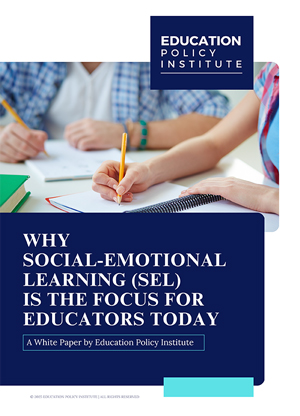Over the decades, the K-12 teachers are easily welcoming the changes in various ways. Teachers have started adopting familiar and resourceful ways to identify the opportunities and also to create a better work to resonate with students.
Evidence-based Learning
Learning is a process that everyone does for lifelong. Therefore, many educators especially in the K-12 are supporting their learning journey. Evidence-based learning is related to the set of methods, processes and strategies that are being proven to get better and clear learning outcomes.
Evidence-based learning is an approach for all the factors of education such as from policy creation to classroom practice-where it is related to randomized trials, as with the testing of latest drugs in evidence-based medicine. When several of these studies are compared and their conclusions combined, one can get a meta-study or meta-analysis. This is highly more reliable than the results of individual studies due to the toughness presence in controlling the variables and individual bias. "Evidence-based teaching" is about the teaching factors.
An instructional strategy that is suitable for one is not necessarily works well for other students, even though they are at the equal grade level. Whether the teachers plan to teach kindergarteners or high school seniors, one needs plenty of pedagogical plans to offer an effective educator for each class.
In this article, let’s have a look at the top evidence-based teaching strategies one wants to implement in the K-12 learning.
State Clear Goals Clarify the Learning Objectives
The future of K-12 learning is that one shouldn’t guess the main objective for a lesson. Teacher must put this information on the board and also verbally state it before starting the lesson. Some teachers also want the students to copy the objective statement in their notes. This is considered one of the effective ways to help the students to stay informed about the task.
The planning of in-detail learning objectives is considered as the most effective teaching ways in which one can engage. This process clarifies for both students as well as educators about the aspects that need to be learned. It also gives a clear view about the guides and focuses on the individual student related to the teaching and learning process. There are several ways in which the teachers can systematically take explicit steps so that the students will know better and also value
Plan Ways for Differentiated K-12 Education
K-12 teachers possess a familiar conundrum: They want to offer personalized education, but large class sizes cannot accommodate it. One solution is differentiated education, which involves offering the students learning choices, giving everyone to select a path that suits their learning styles and talents. For example, if a lesson is related to the presidents of USA, students will have options to choose from such as drawing a poster, creating an educational slideshow, writing an essay or sharing knowledge.
Students must be open to regular feedback
Feedback from the teachers, instructors and educators is the most straightforward path to get influenced by the quality of a student’s work. However, there are high chances that students might not consider this feedback as a learning process but instead thinks that it as a graded assessment. Thus, it is very crucial to form and give the feedback as a growth-oriented learning method and communicate well to let the students know how they can enhance themselves with the help of feedback
Building a system by offering feedback from which students learn and improve can be influenced by the number of students in the class, subjects that are being taught and the level of difficulty of those assignments. Some teachers take help from rubrics, peer grading, checklists and other platforms and ways to offer students with regular feedback.
K-12 Education must be focused on planning strategies
Students won’t be able to perform well in the programs without developing effective approaches to studying. A few aspects that worked well for them in a junior school not necessarily will work well in K-12. However, the students may not know the ways to approach building the knowledge and understanding about the content. Teaching in college can also include exposing the students to various teaching strategies. There are many ways in which this can be done. Sharing the one’s own or the peers’ study strategies can be resourceful. Anonymously acquiring data from students about their study strategies and providing a list for your class is useful.
Collaboratively working to enhance productive ways
Collaborative learning and group work are two essential spaces, which offer numerous advantages and also have been vastly researched. Work together can help to get unique strengths and perspectives of students to make a better learning experience or product than can help an individual student produce great confidence. There are several strategies that the teachers can implement for collaboratively learning and group work activities.
Conclusion
Evidence-Based teaching strategies offer many aspects that have been displayed to encourage motivation, with evidence offering the K-12 students with authentic performance work; they are more likely to know the value about learning.
Latest
Trends blogs
- Automation, Artificial Intelligence, and the Future of Human-Centered Education
- Mid-Career Education in a Changing Labor Market
- The Next Phase of STEM Education: The Role of Artificial Intelligence in Classroom Curricula
- Education Technology in 2026: Trends Driving the Next Wave of Learning
Focus blogs
- Research-Driven Education: Strengthening Strategies, Policies, and Classroom Practice
- Professional Certifications for Career Growth: What Students and Young Professionals Need to Know
- Building a High-Impact Center of Excellence: What You Need to Know
- Beyond Graduation: The Importance of Lifelong Learning in Higher Education





